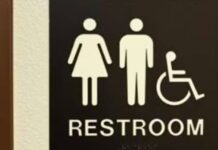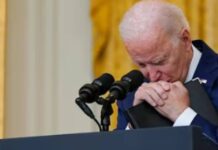
Greg Abbott has had it with the Democrats’ games. He’s putting them in their place.
As Texas Governor Greg Abbott has filed a fiery lawsuit against the Democrats.
Texas Redistricting Conflict Escalates as Democrats Flee State
The battle over redistricting in Texas intensified on August 5, 2025, when Republican Governor Greg Abbott submitted an emergency petition to the Texas Supreme Court, seeking the ouster of Democratic House leader, state Representative Gene Wu, following a mass exodus of Democratic lawmakers aimed at blocking a Republican-led redistricting effort.
On August 3, over 50 Democratic legislators left Texas to prevent a quorum, halting a vote on a redistricting plan backed by President Donald Trump. The proposal aims to reconfigure Texas’s 38 congressional districts to favor Republicans, potentially flipping five seats currently held by Democrats in the 2026 midterm elections.
Abbott’s legal action claims that Wu and other Democrats who fled the state have effectively abandoned their posts, warranting their removal. The governor’s petition specifically targets Wu, arguing his leadership role amplifies the impact of his absence.
The governor further accused Wu and his colleagues of accepting benefits in exchange for their absence, suggesting possible bribery violations. He has directed the Texas Rangers to investigate whether these actions breach state law.
“Representative Wu and the other Texas House Democrats have shown a willful refusal to return, and their absence for an indefinite period of time deprives the House of the quorum needed to meet and conduct business on behalf of Texans,” Abbott said in a statement. “Texas House Democrats abandoned their duty to Texans, and there must be consequences.”
In response, Texas House Democrats condemned Abbott’s tactics, asserting that he is weaponizing the law to suppress opposition. “We took an oath to the constitution, not to a politician’s agenda,” they stated on social media. Abbott’s lawsuit follows his earlier threats to arrest the absent lawmakers, many of whom have relocated to states like Illinois, New York, and Massachusetts. On August 4, Republican lawmakers in Austin voted to issue civil arrest warrants to compel their return.
“To ensure compliance, I ordered the Texas Department of Public Safety to locate, arrest, and return to the House chamber any member who has abandoned their duty to Texans,” Abbott said in a statement.
However, these warrants lack authority outside Texas, and breaking quorum is not a crime that permits extradition. On August 5, Trump suggested federal intervention, stating, “A lot of people are demanding they come back. You can’t just sit it out. You have to go back.”
Abbott has leaned on a 2021 non-binding opinion from Texas Attorney General Ken Paxton, which argued that a district court could remove legislators for abandoning their office, creating vacancies. Paxton, on August 4, told Fox News he anticipates the Texas Supreme Court, which he described as “obviously a Republican court,” will rule on such cases.
The Democrats face financial penalties, including a $500-per-day fine for their absence, a measure established after a similar quorum break in 2021 over voting restrictions, which stalled legislative operations for 38 days.
Democratic Resistance to Bipartisanship Contributes to Party’s Declining Favorability
The Democratic Party’s refusal to engage in bipartisan efforts, exemplified by actions like the Texas quorum break, has significantly contributed to its historically low favorability ratings, as recent polls and political developments indicate. A July 2025 Gallup poll revealed the Democratic Party’s favorable rating at a record low of 34%, down from 36% in November 2014, marking the lowest in Gallup’s trend since 1992. This decline is driven partly by dissatisfaction among Democrats themselves, with only 73% viewing their party favorably, a sharp drop from 87% in prior readings.
This erosion of support stems from multiple factors, including the perception that Democrats are unwilling to compromise with Republicans, as seen in high-profile standoffs like the Texas redistricting battle. The quorum break, while a tactical move to block Republican redistricting, has been portrayed by critics as an abandonment of legislative duty, reinforcing narratives of partisan obstructionism. Governor Abbott’s aggressive response, including legal action and arrest warrants, has amplified public perception of Democratic intransigence, further alienating voters who value governance over gridlock.
Nationwide, the Democratic Party’s image has suffered due to its shift toward progressive policies that resonate with its base but alienate moderates and working-class voters. A February 2025 article from The Hill noted that 55% of Democratic supporters now identify as liberals, a record high, while only 34% are moderates and 9% conservatives.
The refusal to work across the aisle is not a new phenomenon but has become more pronounced in recent years. A 2016 Vanderbilt University study highlighted that negative feelings toward the opposing party, rather than ideological differences, often prevent compromise. Democrats’ distrust of Republicans, with favorability scores for the GOP among Democrats lower than those for groups like Christian Fundamentalists, has deepened this divide, reducing incentives for bipartisan cooperation.
In Congress, Democratic resistance to Republican initiatives, such as the 2025 spending bill vote where Senate Democrats faced backlash for siding with Republicans, has fueled perceptions of inconsistency or weakness. An NBC News poll from March 2025 showed Democratic voters prefer their leaders to fight Trump’s agenda rather than seek compromise, with a 2-to-1 ratio favoring gridlock over collaboration. This stance, while energizing the base, risks further alienating independents, whose 27% favorable rating of the party ties a historic low from 2014.
By fleeing the state, Democrats aimed to protect their electoral prospects but instead drew criticism for evading responsibility. A March 2025 letter from Congresswoman Sheri Biggs highlighted Democratic refusal to applaud bipartisan achievements during Trump’s State of the Union address, such as border security measures, as a sign of prioritizing politics over national interest. This perception of pettiness has resonated with voters, contributing to the party’s 57% unfavorable rating in a Quinnipiac poll.
A January 2025 New York Times analysis noted that Democrats’ focus on globalist policies and elite-driven agendas has alienated blue-collar workers, a trend evident since the 1990s but intensified in Trump’s 2016 and 2024 victories. The party’s failure to address economic concerns like job losses from trade deals or inflation has ceded ground to Republicans, who have gained among Latino and Black working-class voters.



















